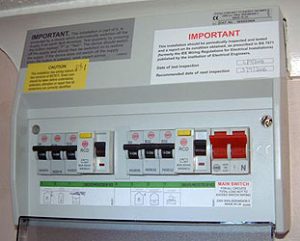
No.
Why not?
WGHC is a fully mutual housing co-operative.
All its tenants are Members and all Members are tenants.
Collectively, the Members jointly own the houses and flats they live in and control the way the organisation is run.
As all the housing is jointly owned by all co-operative Members, they do not have the right to individually buy their home; but are tenants and pay rent to the co-operative.
What does my Scottish Secure Tenancy Agreement say about this?
Section 10 of the agreement states that:
“By signing this agreement you confirm that when you become a Scottish secure tenant we told you that you do not have the right to buy. The right to buy is governed by Part 3 of the Housing (Scotland) Act 1987 as amended by the Housing (Scotland) Act 2014.”
Allowing WGHC to keep ownership of all its own stock, helps to ensure it remains in existence and that its housing will remain available at reasonable rents to those in need.
WGHC will advertise any empty properties available to let to non-WGHC tenants, on the “Key to Choice” website.
Copies of all advertised properties should also be available from any Edindex partner landlord.
Each week we print out an updated list of all the advertised properties. Copies can be picked up from our reception area and are available to everyone.
Applicants can note their interest in any of the properties advertised. This is called placing a bid. All properties are advertised for one week and the closing date for bids is every Friday. Generally, the property will be let to the first applicant on the shortlist who meets the criteria for the vacancy.
You must be registered with Edindex to note your interest in any of the properties advertised. Edindex Application forms can be picked up direct from the WGHC Office or from partner landlord, including any Council Office.
West Granton Housing Co-operative is committed to providing high quality customer services.
We value complaints and use information from them to help us improve our services.
If something goes wrong or you are dissatisfied with our services, please tell us. This leaflet describes our complaints procedure and how to make a complaint. It also tells you about our service standards and what you can expect from us.
What is a complaint?
We regard a complaint as any expression of dissatisfaction about our action or lack of action, or about the standard of service provided by us or on our behalf.
What can I complain about?
You can complain about things like:
- delays in responding to your enquiries and requests
- failure to provide a service
- our standard of service
- dissatisfaction with our policy
- treatment by or attitude of a member of staff
- our failure to follow proper procedure.
Your complaint may involve more than one of our services or be about someone working on our behalf.
What can’t I complain about?
There are some things we can’t deal with through our complaints procedure. These include:
- a routine first-time request for a service, for example reporting a problem that needs to be repaired or initial action on anti social behaviour
- requests for compensation
- our policies and procedures that have a separate right of appeal, for example, if you are dissatisfied with the level of priority you have been given when applying for a house, you may have the right to appeal against the decision
- issues that are in court or have already been heard by a court or a tribunal
- an attempt to reopen a previously concluded complaint or to have a complaint reconsidered where we have already given our final decision following a stage 2 investigation. If you are still not satisfied, you can ask the Scottish Public Services Ombudsman for an independent review of the complaint.
If other procedures or rights of appeal can help you resolve your concerns we will give information and advice to help you.
Who can complain?
Anyone can make a complaint to us, including the representative of someone who is dissatisfied with our service. Please also read the section on ‘Getting help to make your complaint’.
How do I complain?
You can complain in person at our office, by phone, in writing, email or by using our complaints form.
It is easier for us to resolve complaints if you make them quickly and directly to the service concerned. So please talk to a member of our staff at the service you are complaining about. Then they can try to resolve any problems on the spot.
When complaining, tell us:
- your full name and address
- as much as you can about the complaint
- what has gone wrong
- how you want us to resolve the matter.
How long do I have to make a complaint?
Normally, you must make your complaint within six months of:
- the event you want to complain about, or
- finding out that you have a reason to complain, but no longer than 12 months after the event itself.
In exceptional circumstances, we may be able to accept a complaint after the time limit. If you feel that the time limit should not apply to your complaint, please tell us why.
What happens when I have complained?
We will always tell you who is dealing with your complaint. Our complaints procedure has two stages:
Stage one – frontline resolution
We aim to resolve complaints quickly and close to where we provided the service. This could mean an on-the-spot apology and explanation if something has clearly gone wrong, and immediate action to resolve the problem.
We will give you our decision at stage 1 in five working days or less, unless there are exceptional circumstances.
If we can’t resolve your complaint at this stage, we will explain why.
If you are still dissatisfied you can ask for your complaint to be investigated further through stage 2. You may choose to do this immediately or some time after you get our initial response. We can help you with making this request.
Stage two – investigation
Stage 2 deals with two types of complaint: those that have not been resolved at stage 1 and those that are complex and require detailed investigation.
When using stage 2 we will:
- acknowledge receipt of your complaint within three working days
- discuss your complaint with you to understand why you remain dissatisfied and what outcome you are looking for
- give you a full response to the complaint as soon as possible and within 20 working days.
If our investigation will take longer than 20 working days, we will tell you. We will agree revised time limits with you and keep you updated on progress.
What if I’m still dissatisfied?
After we have fully investigated, if you are still dissatisfied with our decision or the way we dealt with your complaint, you can ask the Scottish Public Services Ombudsman (SPSO) to look at it.
The SPSO cannot normally look at:
- a complaint that has not completed our complaints procedure (so please make sure it has done so before contacting the SPSO)
- events that happened, or that you became aware of, more than a year ago
- a matter that has been or is being considered in court.
You can contact the SPSO:
In Person: SPSO, 4 Melville Street, Edinburgh EH3 0BR
By Post: Freepost SPSO
Freephone: 0800 377 7330
Online contact www.spso.org.uk/contact-us
Website: www.spso.org.uk
Reporting a Significant Performance Failure to the Scottish Housing Regulator
The Scottish Housing Regulator (SHR) can consider issues raised with them about ‘significant performance failures’. A significant performance failure is defined by the SHR as something that a landlord does or fails to do that puts the interests of its tenants at risk, and which the landlord has not resolved. This is something that is a systematic problem that does, or could, affect all of a landlord’s tenants. If you are affected by a problem like this, you should first report it to us. If you have told us about it but we have not resolved it, you can report it directly to the SHR.
A complaint between an individual tenant and a landlord is not a significant performance failure. Significant performance failures are not, therefore, dealt with through the WGHC complaints handling procedure. You can ask us for more information about significant performance failures. The SHR also has more information on their website:
http://www.scottishhousingregulator.gov.uk/
You can email: enquiries@scottishombudsman.org.uk.
Or you can phone them on: 0800 377 7330

We generally put repairs into 3 categories:
-
Emergency
If there is a serious risk to health and safety, we will try to make the repair safe within 3 hours and complete it within 24 hours of you reporting it. For example, a burst pipe or no electrical power in your home.
-
Urgent
We will try to complete these repairs within two working days of you reporting them. For example, a leaking pipe or no hot water.
-
Routine
We will try to complete these repairs within 10 working days of your reporting them. For example, a dripping tap or plasterwork repairs.
 Reporting an Emergency Repair out of Office Hours
Reporting an Emergency Repair out of Office Hours
If you need to report an emergency repair out of office hours phone:
Hanover Telecare on 0800 917 8039
What do I do if my electricity goes off?

The Consumer Unit
It is really just a modern day fuse box. All switches should be in the up position if everything in your electrical circuits is in order.
If however a problem arises, it will cause one or more of the switches to trip. When this happens the switch or switches automatically go to the down position. The switches in your consumer unit are all clearly marked to show what they are linked to e.g. your lighting or the sockets for your appliances. Appliances may be fixed appliances such as washing machines or boilers or anything plugged into a socket.
What do to if your electricity goes off
If your electricity has gone off it could be that credit has run out on your prepayment meter OR a power cut in which case contact your electricity supplier.
If it’s not that, try the following….
1. Check your Lighting
If one or all of the lighting circuits has gone off and you don’t know why you should do the following:-
- Switch off all the light switches around the house.
- Go to your consumer unit and first switch off all the lighting circuits.
Then switch them all back on one at a time and the electricity to the lighting should come on again.
- Then switch each light switch on one at a time.
- If a switch or light is faulty the circuits will go off again.
- Repeat this procedure as before but this time do not switch on the faulty item.
If the problem is a bulb – try replacing it.
Otherwise please report the problem to WGHC.
2. Check your Appliances
If one or more of the appliance circuits has gone off and you don’t know why you should do the following:-
- Switch off all appliance sockets and switches around the house.
- Go to your consumer unit and first switch off all the appliance circuits.
- Then switch them all back on one at a time and the electricity to the appliances should come on again.
- Then switch each appliance on one at a time.
- If an appliance is faulty the circuits will go off again.
- Repeat this procedure as before but this time do not switch on the faulty item.
- If the problem is one of your appliances (e.g. iron, kettle, vacuum cleaner) then you should replace or repair it.
If it is something else then report the problem to WGHC on 0131 551 5035.
House Exchange is a database of information given by tenants that want to move. House Exchange INSTANTLY lets you know what matches you have on the system and by registering for email alerts it can let you know as soon as a new match registers. Tenants can then contact each other to view the properties. If both parties are still interested in exchanging they can apply to WGHC for an exchange. Both parties must have either a council or housing association tenancy
To register and start searching today log onto:
Please note NO mutual exchange can take place without WGHC’s permission.
 We expect tenants to accept that everyday activities will always create some level of noise. Noise generated within properties and from various occupant lifestyles (including families and different work patterns) can vary significantly between households. This is often more pronounced within flatted properties where both airborne and impact sounds can naturally travel from one dwelling to another.
We expect tenants to accept that everyday activities will always create some level of noise. Noise generated within properties and from various occupant lifestyles (including families and different work patterns) can vary significantly between households. This is often more pronounced within flatted properties where both airborne and impact sounds can naturally travel from one dwelling to another.
If noise becomes a problem, you can telephone the City of Edinburgh Council’s Noise Team on 101 at any time of day or night. The Team have dedicated wardens who can visit properties to measure noise levels and issue fixed penalty notices if appropriate. The Housing Management Team find this action helpful because the wardens can provide us with corroboration of any breaches of tenancy.
 Reporting an Emergency Repair out of Office Hours
Reporting an Emergency Repair out of Office Hours